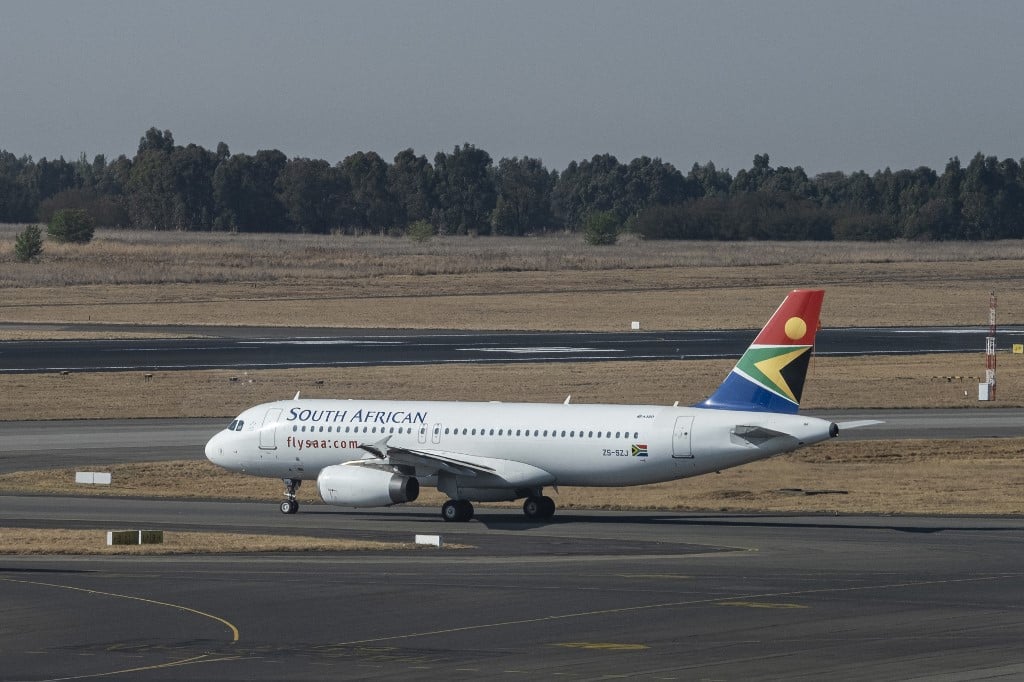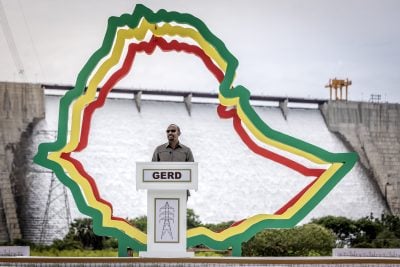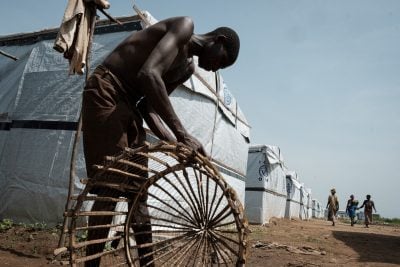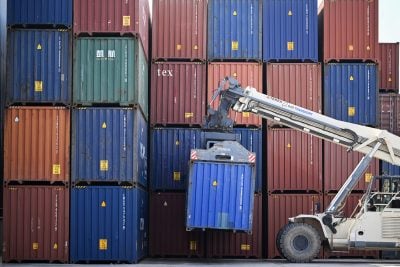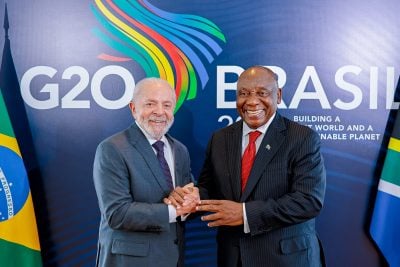After a gruelling two-year process, the long-awaited privatisation of South African Airways has encountered fresh obstacles as the country’s competition regulator demands the exclusion of low-cost carrier Lift’s co-owners from the Takatso consortium.
The consortium, which hopes to acquire a controlling 51% stake in the national airline, has received conditional approval from the South African competition watchdog.
But the Competition Commission ruled that the takeover would proceed only if Syranix and Global Aviation, the co-owners of Lift, step away from the consortium.
The measure aims to safeguard against a “substantial reduction and prevention of competition” within the domestic passenger transport network, it said.
Syranix offers a full-spectrum consulting service for managing and operating airlines, while Global Aviation provide infrastructure, aircraft, pilots, technicians and aircraft facilities.
The two companies hold minority stakes in the Takatso consortium, alongside the majority shareholder, private equity firm Harith General Partners.
Mixed messages
The Commission’s statement added: “The merging parties have therefore agreed that Global Aviation and Syranix will completely divest from Takatso prior to the merger.”
But Global Aviation and Syranix deny that they agreed to divest to help secure the regulatory approval of the deal.
“We have not agreed to divest from Takatso/SAA and remain open to finding a way to share the deep local skills and experience we have in order to build a sustainable regional and international airline and an iconic South African brand,” Global Aviation/Syranix representative and former Takatso CEO Gidon Novick told ch-aviation, an airline intelligence provider.
Conflicting messages have also been released around how the consortium plans to raise the R3bn ($156m) they promised to inject into the airline.
At the Air Finance Africa conference in Johannesburg on 12 May, the interim CEO of SAA, John Lamola, said that Harith would raise fresh capital and not leverage SAA’s assets to raise the money.
“Based on my understanding of the future shareholder, there is an understanding that the injection of the SEP [strategic equity partner] capital will enable SAA to go to the capital markets to raise more funds,” he said. But 48 hours later the spokesperson for the consortium released a contradictory statement saying they would look to leverage SAA’s balance sheet.
The Competition Commission also raised concerns over the potential exchange of sensitive information between South African Airways and Lift, due to the presence of Lift’s co-owners, who hold shares and wield board appointment powers within Takatso. To ensure a level playing field, the Commission further insisted on a moratorium on layoffs following the acquisition of the 51% stake by Takatso.
The Commission’s condition is only a recommendation to the Competition Tribunal, who will convene to arbitrate on the issue, but whose final decision can be appealed.
South African Airways, burdened by consecutive deficits since 2011, has managed to stay afloat solely through state bailouts. While the approval of the majority stake sale to the Takatso consortium marked a breakthrough in the airline’s restructuring efforts, challenges persist in navigating the privatisation process.
Still going south
In June 2021, the Takatso Consortium struck a deal to purchase a 51% stake and inject $221m into SAA, bringing an end to years of speculation over the future of the troubled airline.
The airline had received billions of rand in government funds but had not turned a profit since 2011, leading to a fierce debate in which some politicians advocated its permanent closure, while others supported full or part privatisation.
But ever since the deal has been beset by roadblocks. On Thursday South Africa’s largest trade union, the National Union of Metalworkers of South Africa (Numsa), issued a statement saying that the deal “stinks of corruption” and calling for it to be stopped.
Numsa’s objections included the secrecy surrounding the deal, the “undervaluing”zero valuing” of SAA at the time of sale – the agreed selling price was a nominal R51 ($2.65) – and the lack of proof that Takatso would be able to raise the capital that needs to invested in the airline.
“Workers at SAA have paid the highest price for the restructuring of the airline through the loss of at least three thousand jobs. Takatso has not paid a cent to acquire the airline. They are effectively being gifted with a complete company for nothing,” said the statement.
The union said that it had already written to the chairperson of the South African parliament’s Standing Committee On Public Accounts (SCOPA) and that it would demand a commission of public enquiry if the sale went through.
“We see this entire process as another form of state capture… sadly, parliament is folding its arms doing nothing to stop this heist,” said the union.
With South Africa’s government keen to keep the powerful trade unions on side, Numsa’s opposition may sway the outcome of the ruling on the merger, said one expert speaking on the condition of anonymity.
Want to continue reading? Subscribe today.
You've read all your free articles for this month! Subscribe now to enjoy full access to our content.
Digital Monthly
£8.00 / month
Receive full unlimited access to our articles, opinions, podcasts and more.
Digital Yearly
£70.00 / year
Our best value offer - save £26 and gain access to all of our digital content for an entire year!

 Sign in with Google
Sign in with Google 